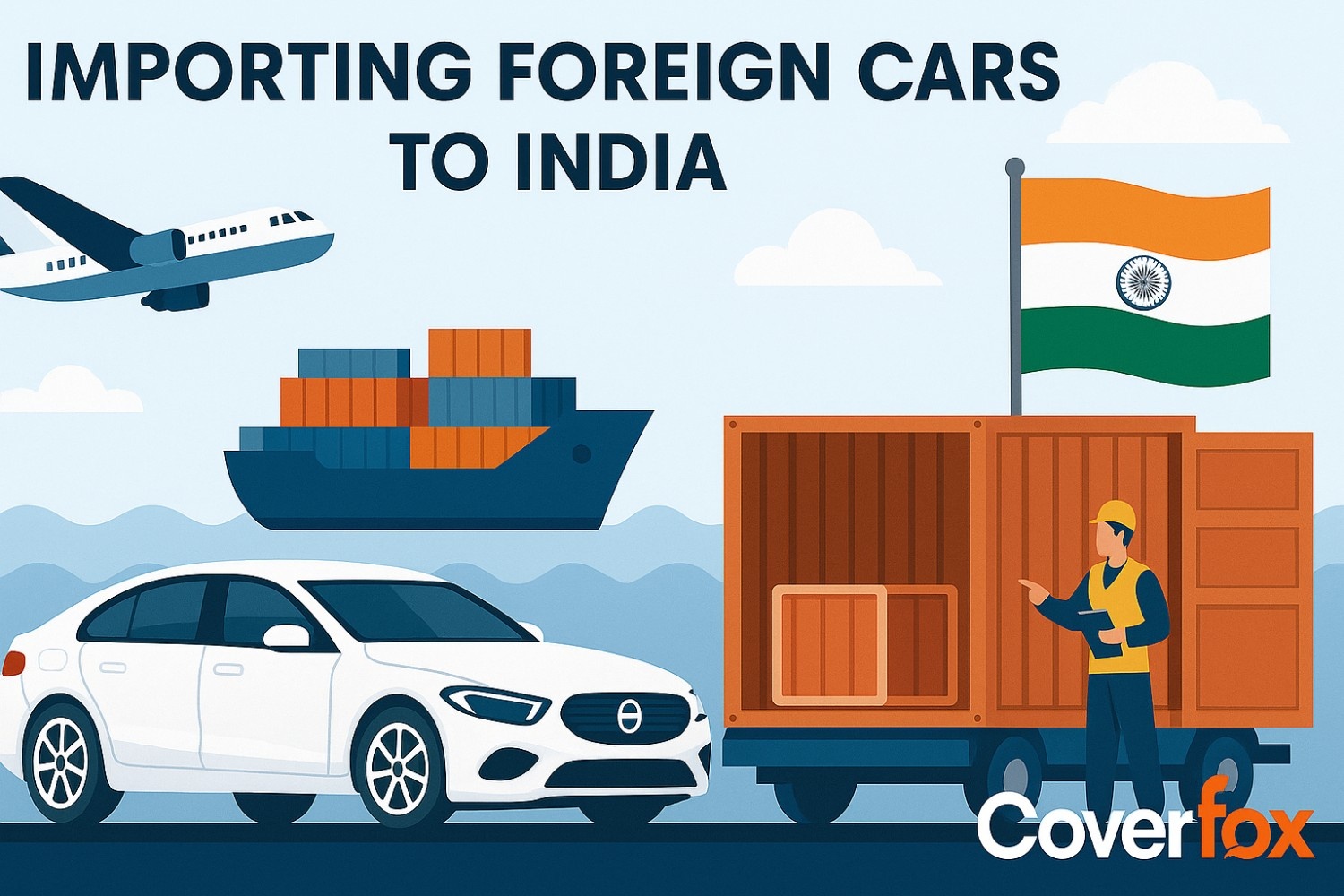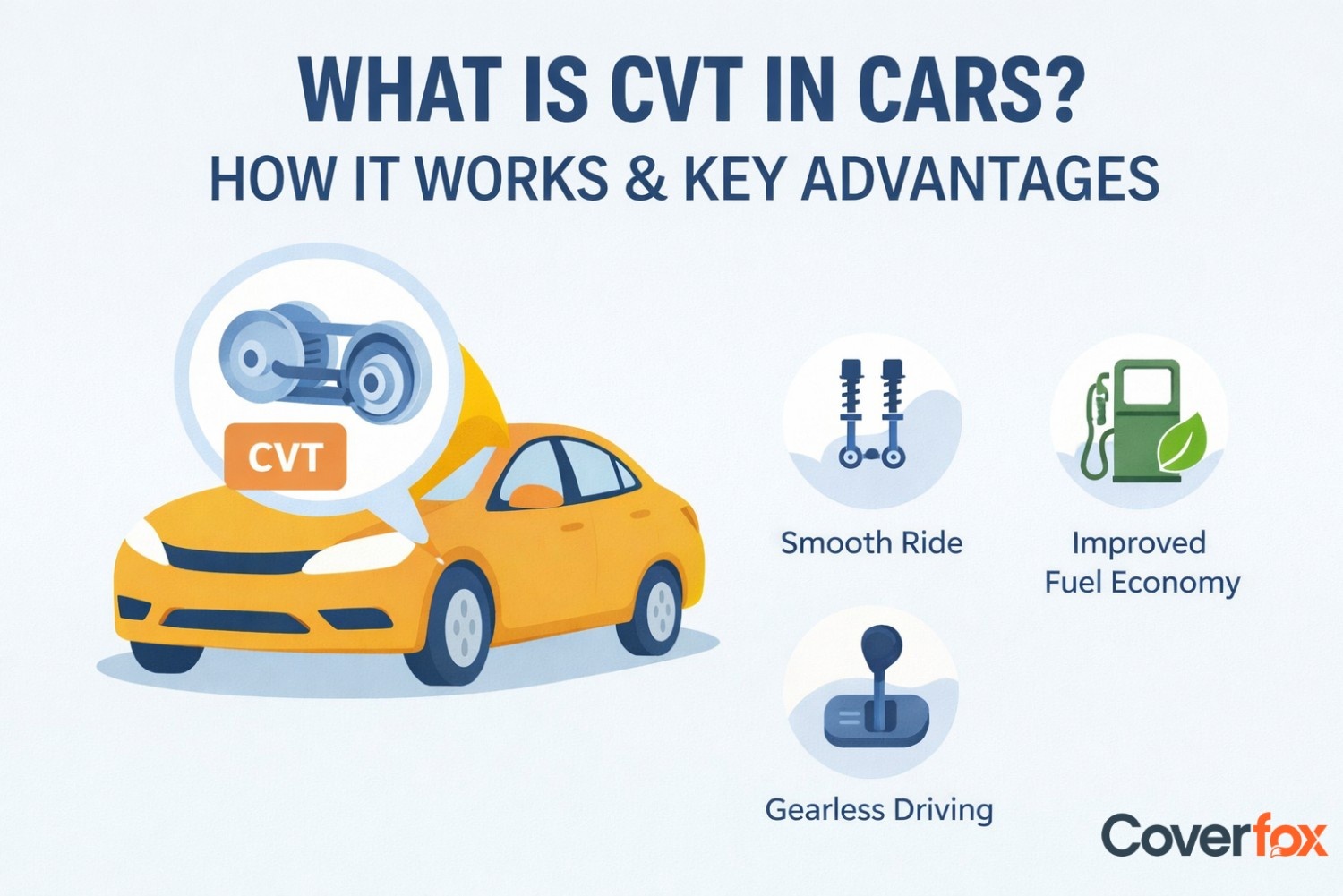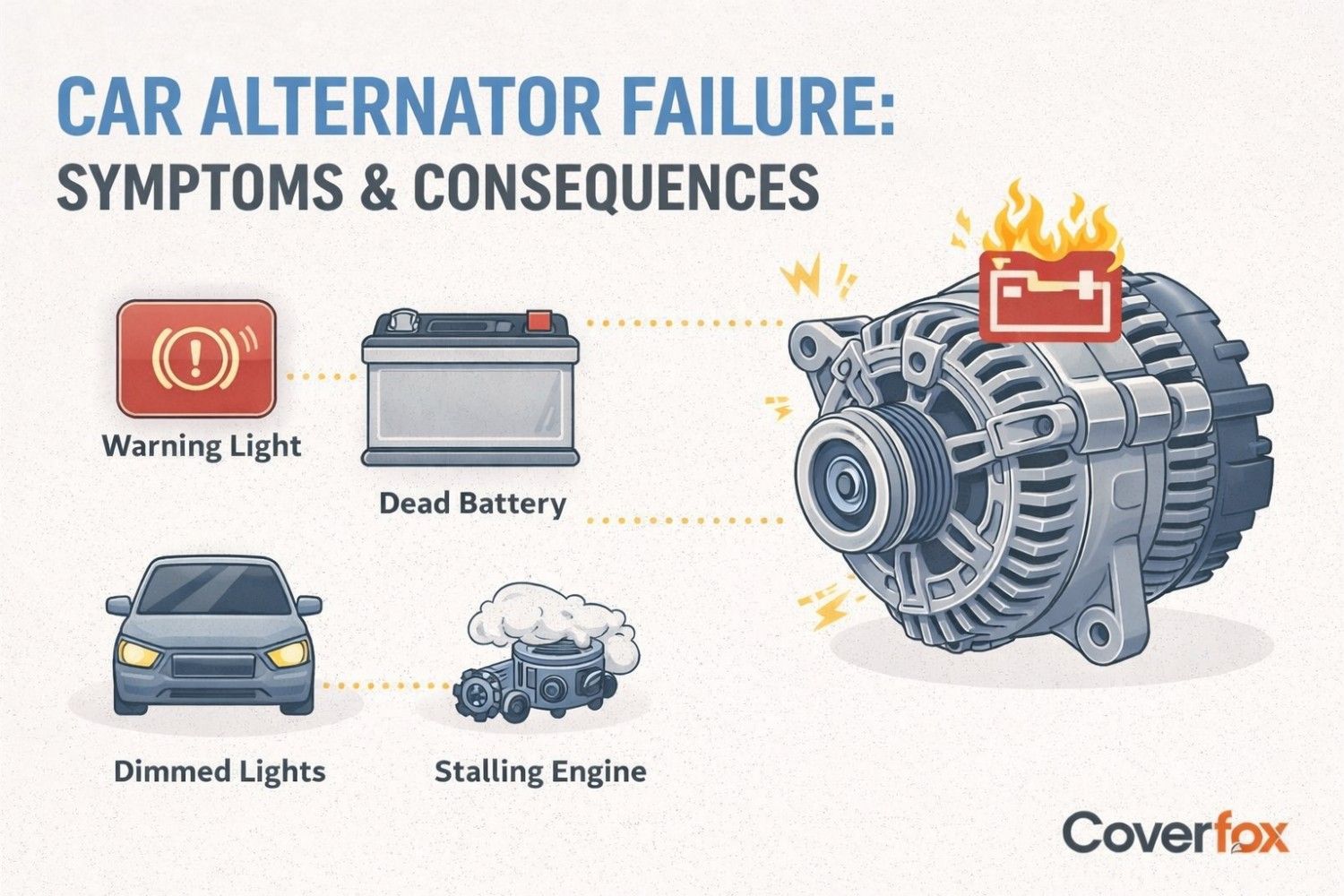Ever found yourself fascinated by purchasing a sleek, luxurious, and performance-efficient foreign car, only to find out it is not available in India? In such cases, importing these cars to the country becomes an appealing option, especially for car enthusiasts drawn towards unique models with awe-inspiring features.

However, the process for importing cars in India is not as simple, involving significant costs such as import duties, detailed procedures, and compliance with rules and regulations set forth by the Indian Government.
But fear not! The guide below delves deep into the process involved, covering essential rules, eligibility, and a step-by-step process to help you understand how to import foreign cars into India smoothly.
Guidelines for Bringing a Foreign Car into India
Importing a foreign car to India requires a certain set of guidelines that must be adhered to by individuals. Based on whether the car is new or used, the rules will vary for both.
Requirements for Importing Brand-New Foreign Vehicles
In case an individual wants to import a new foreign car into the country, the set of conditions includes:
1. The Condition of the Vehicle
- The car must be brand-new and never used, sold, loaned, registered, or leased before import.
- It should be manufactured or assembled outside India.
- The car must be imported only from the country where it was originally built.
2. Vehicle Compliance for Indian Roads
- The vehicle has to be right-hand drive.
- Headlights must illuminate the left side of the road, adhering to Indian traffic norms.
- The speedometer should display speed in kilometres per hour (km/h), not miles.
3. Port of Entry
- Import is allowed only through the naval ports located in Mumbai, Chennai, or Kolkata.
Requirements for Importing Pre-Owned Vehicles from Abroad
For those looking to import foreign cars that have been used, the guidelines differ from those of a brand-new foreign car:
1. Vehicle Age and Condition
- The used car should be no older than 3 years from its manufacturing date.
- It must be roadworthy and have a valid certificate proving this for at least 5 years.
- The car should have been loaned, leased, registered, or sold before import.
2. Vehicle Requirements for India
- The car must be right-hand drive.
- The headlights must shine on the left side of the road (following Indian traffic rules).
- The speedometer should show speed in kilometres per hour, not miles.
3. Port of Entry
- The car can only be imported through the naval ports in Mumbai, Chennai, or Kolkata.
4. Engine Restrictions
- Cars with engine sizes between 1,000cc and 2,500cc cannot be imported.
- Heavy motorcycles with engine sizes from 50cc to 500cc and scooters with 250cc to 800cc engines are also not allowed.
Eligibility: Who Is Allowed to Import Cars into India?
There is a certain criterion for those who are eligible to bring imported cars in India. These include:
| Category | Eligibility/Criteria |
|---|---|
| Foreign Nationals & NRIs | Not resided in India for at least 2 years prior; vehicle owned for at least 1 year abroad. |
| Legal Heirs/Relatives | Successors of a person who died abroad and left a vehicle in their possession. |
| Physically Challenged Individuals | Eligible to import vehicles under specific government allowances. |
| Business Entities (Indian or Foreign-owned) | Indian businesses with foreign equity, foreign companies with Indian branches, or other corporations importing for commercial use. |
| Religious, Missionary, or Charitable Trusts | Registered Indian trusts that follow government norms. |
| Honorary Consuls | With a recommendation from the Ministry of External Affairs, Government of India. |
| Accredited Journalists | With accreditation from the Press Information Bureau, Ministry of Information and Broadcasting, Government of India. |
| Diplomats & Embassies | Under diplomatic privileges and government clearance. |
| Automobile Manufacturers & R&D Entities | Companies and organisations importing for research, testing, or development purposes. |
| Tourists & Temporary Visitors | Foreign nationals temporarily bringing vehicles under the Carnet de Passage scheme. |
Rules for Bringing Your Car While Relocating to India
During the process of Transfer of Residence, that is, while permanently shifting to India, foreign nationals or Non-Resident Indians (NRIs) can be allowed to import one vehicle to the country, be it a new or used car or bike. The requirements for doing so are:
1. Residency Requirements
- Must not have lived in India for at least two years before moving.
- Must plan to stay in India for at least one year after moving.
- Should not have used this import scheme in the past three years.
2. Who Can Apply
- Only one family member can apply by filling out the Transfer of Residence form.
3. Import Timing and Restrictions
- The vehicle must be imported within six months of moving.
- The vehicle cannot be sold or transferred for two years after import.
4. Vehicle Engine Rules
- No new or used restrictions if the engine is between 75cc and 500cc.
- If the engine is over 1,600 cc, it must have been registered in the original country for at least one year.
Step-by-Step Process and Required Paperwork for Car Import
The procedure for importing cars in India can be done through two means, either by the manufacturer or an agent. With the first route, you need to gather all the required documents and handle the entire import process. But with an agent, you are assisted throughout the process, including helping with the car’s registration in India.
The documentation involved includes:
- Invoice for the vehicle
- Insurance policy
- GATT Declaration
- Bank Draft
- Bill of Lading or Sea Waybill
- Import License
- Purchase Order/Letter of Credit
- Test report
- Duty Exemption or Entitlement Certificates (DEEC, DEPB, ECGC)
- Other documents as required
Key Factors to Keep in Mind Before Importing a Car into India
The process of importing foreign cars to India can be time-consuming and presents its own set of challenges. However, keep the following in mind before starting the process:
Duty and Car Import Tax India
Registration and Road Tax
Eligibility for Commercial Vehicle Imports
Compliance and Testing Requirements
Import duty on cars in India depends on the vehicle’s CIF (Cost, Insurance, and Freight) value. Cars over USD 40,000 typically face around 100% customs duty, while those under 40,000 attract about 60-70%. Used cars incur a higher car import tax in India of about 125%.
Every imported vehicle must be registered at the nearest Regional Transport Office (RTO) in India. Registration fees and road tax are separate from import duty and vary by vehicle type and cost.
Only specific individuals and organisations (NRIs, diplomats, registered trusts, businesses, government agencies) are allowed to import commercial vehicles.
Imported vehicles must be submitted to authorised testing centres to ensure they meet Indian motor vehicle laws, including safety and emission standards.
Key Takeaways
Thus, the process of importing foreign cars to India requires significant costs and compliance with strict regulations. Whether one decides to import brand-new or used cars, adherence to eligibility criteria, documentation, duty payments, and procedural rules is very important. Once imported, foreign cars must be registered with the Regional Transport Office (RTO) in India and then insured with an Indian car insurance policy to legally drive on Indian roads.
Need a platform to select the right insurance policies tailored to your needs? Coverfox has got you covered with a wide selection of plans, so you can ensure complete protection of your significant investment—in the right way!
Explore More:
How Can I Get a Copy of My Purchased Car Insurance Policy Online?
How to Check Car Insurance Online, a Step-by-Step Guide?
How to Transfer Your Car Insurance Policy: A Step-by-Step Guide
Frequently Asked Questions on Importing Car to India
Where should a vehicle be submitted after import?
After import, the vehicle should be submitted to recognised naval ports in Mumbai, Chennai, or Kolkata for customs clearance.
Can left-hand drive vehicles be imported to India?
Generally, no, as the rule states that the vehicle must be right-handed. If importing left-handed vehicles, then convert them into right-handed vehicles to suit Indian Motor laws.
What is the homologation of vehicles?
The homologation of vehicles is a process involved to certify that a vehicle complies with Indian safety, emission, and technical standards.
How much does it cost to import a car to India?
The cost involved to get imported cars in India is expensive, mainly based on the car’s CIF (Cost, Insurance and Freight) value. It is typically around 150 to 200% of the car’s original value, including costs like customs duty, GST, registration charges, and other additional duties.
How can we import car engines to India?
Yes, you can. However, it should comply with Central Motor Vehicle Rules (CMVR), emission norms, and customs regulations while also being subjected to import duties.
How can an NRI import a car to India?
Yes, NRIs can import one car to India. However, they should not have resided in India for at least 2 years and may need to own their car (whether new or old) for at least 1 year before the import.
How can I import my own car to India?
Yes, you can. But you need to ensure it meets certain requirements such as eligibility, certifications, customs regulations, and duty payments.
How can I import a vintage car to India?
Vehicles over 50 years old qualify as vintage cars and follow a similar process to recently manufactured vehicles, but require the Ministry of Commerce approval and customs regulations compliance, which include high import duties.





